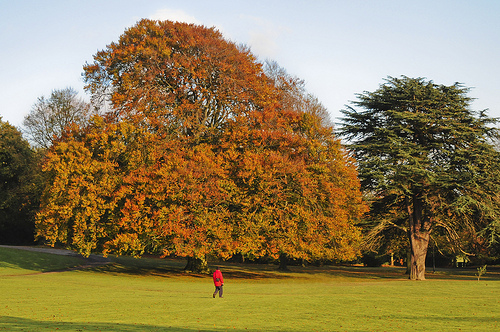Let’s start from an assumption: given a list of “concerns”, the Great British Public put “immigration” about equal with the “economy” as the most important issues facing the country at this time.
Phrase the same issue in personal terms, as the most important issues facing you and your family, and we have a completely different result: “health”, “economy” and “pensions” take priority. “Immigration” is on a par with “tax”.
YouGov, by using a “tick three boxes” approach, and prompting from a 13-point set list, are almost certainly distorting both those hierarchies.
We have instantly defined the different approaches of the two main parties: the Tories are reading from the “national” list, but Labour stick to the familial one.
Another assumption from those YouGov figures: “immigration” is no more potent a concern today than it was four years ago.
That, in itself, doesn’t explain the mushroom growth of the UKIP tendency over the same time-span.
It’s worth balancing “Europe”, as a separate issue, against “immigration” in those YouGov assertions (they are, after all, no more than “constructs” achieved by statistical machination). As one rises, the other seems to decline. My assumption is some kind of parallelism is going on here.
Cue Steve Bell:

Woo! I’d guess you need to be of a certain age fully to appreciate that. Bell was obviously revisiting the Guardian’s story effort just the day before:

Harold Wilson’s “parliamentary leper” slogan lingered: Tory MPs were observed to be reticent in sitting next to Griffiths, even when he was re-treaded in Portsmouth North.
Even now, decent types (of all respectable parties, and none) have problems “defining” an approach to immigration.
Here goes:
I’d suggest there are two main types of immigration — effectively, the bad and exploitative versus the worthy and contributory.
Here I have a personal, even subjective, approach.
Bad immigration
It says in my (highly-subjective) genealogy that at least three of my maternal ancestors waded ashore, unannounced and undocumented, at Pevensey. They were dead-set on subverting the whole English social structure, exploiting the whole welfare and economic systems of Good King Harald. They arrived on 28th September, 1066.
They, and their direct line, didn’t do too badly. A whole host of other descendants of those three occupy positions of respect, power — and even royalty — to this very day. Sadly — no, happily — not myself, thanks to the odd lucky illegitimacy along the generations.
Worthy immigration
Meanwhile, across the distaff side of the matrimonial bed, I am constantly reminded of decency.
Her lot (or, at least a significant line thereof) arrived in the County Down around 1700. They were political and religious refugees from France, via the Low Countries. We call them Huguenots, perhaps from some assumption over the Swiss Besançon Hugues, who was a prime mover of the protestant reformation in Geneva. Or, more likely, because they had debunked from France after the Edict of Nantes, and had to share multi-occupation tenements as Huisgenoten in Flanders.
Anyway, in 1697, Louis Crommelin was set by the Earl of Galway (no Irishman he: this was Pierre de Ruvigny, lately re-dignified by William of Orange) to establish a Royal Linen Manufacture in occupied east Ulster. There was already Nicholas Dupin, another Huguenot, who had arrived via Scotland around 1690, producing linen for the London market. Seeing the score, Crommelin hit on Lisburn and imported 120 Huguenot families into the town.
Thus was born an entire new industry, whose products still sell to the unwary at airport outlets and the like, even when “Made in Ireland” means “made in China”.
Two main types of immigration
What I am suggesting here is we can go with importing large numbers of the second type of immigrants. We can do without the other sort.
You’ll find the good sort tiling your roof, fixing your plumbing, delivering your purchases, seeing to your next round of drinks, doing every kind of useful and productive stuff.
You’ll find the latter buying up Knightsbridge, and appearing in the gossip columns (and the divorce courts).








